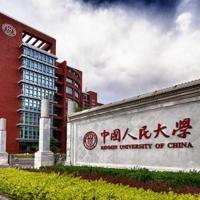Turkey’s Kurds and Europe
During his visit to Britain last week Mr. Jacques Chirac, President of France, made a very important statement. He expressed his wish and expectation for a multi-polar world and a just global order based on consensus. He added that it is possible to reorganize the world by force but experience has shown that such an order is fragile and is soon bound to lead to disorder and conflict. No nation, how powerful, should act independently in order to avoid arbitrariness and unfair treatment of other nations just because they have different values. Another point he made is that while democracy is desirable, its exportation is often perceived not as an indigenous demand but imposition of “westernization” that evokes imperialism and colonization, the memories of which is still fresh in many parts of the world. So the best thing to do is to help democracy grow indigenously and to nurture it through concerted international efforts and institutions such as the reformed United Nations.
Many people may undersign these words of wisdom. But then, why do the political class and majority of the people of a country who admonish the world like a sage do the opposite of what they preach? Yes, I mean the French people’s (among other European nations) ambivalence towards Turkey’s future membership to a world whose values and institutions have been shaped by the West? Let us contemplate what Turkey’s membership or role as a candidate striving to achieve EU standards after accession talks start can bring to the Union:
1- Europe’s fears whether a religion other than Christianity is compatible with the rule of law, pluralism and democracy based on individual freedoms will gradually and eventually subside.
2- Turkey’s accomplishments during the “trial run” (preparations for membership) will draw the attention of Middle Eastern and Muslim countries and they will make comparisons with their own standards in the years to come. The more Turkey nears completion the more they will fancy the same accomplishments. This process will definitely foster and inspire similar changes in the Middle East and the Muslim world.
3- The more Turkey approaches the finish line the more foreign investment it will draw. Growing prosperity will not only whet the appetite of the Turks more authoritarian and less affluent neighbors but will also be looked on as a phenomenon to protect western economic interests, for significant energy routes (gas and petroleum) will pass through Turkey to replenish the European economy.
4) The EU will be neighbors of important Middle Eastern countries like Iran, Iraq and Syria. These countries may be contributors to world peace or may be spoilers as they have occasionally been in the past. EU’s neighborhood to the Middle East will provide leverage to influence developments in this region and ward off possible offenses to its security. Without Turkey’s partnership and contribution the EU will never achieve this power or stature. It will miss the opportunity to be a global actor and to counter-balance the unilateral influences of other powers whose one-sided initiatives can make the world a more insecure place for all.
What does all this have to do with the Kurds of Turkey? First of all, the “Kurdish Problem” of Turkey has been a long time destabilizing element and reason for retardization of the country’s economy and democratic standards. The Kurds have made up their minds to disavow any form of violence for political ends. They express their frustration as to convincing the Turkish establishment that they “want in” not out. They shyly justify past violence as an outburst against the denial of their ethnic-cultural identity and the heavy embargo on expressing this identity during their claims of rightful or normal citizenship rights. They look at the past bitter years of internal strife which they and the whole country suffered as a lesson learned the hard way. How do I know this? In the past three months I have been traveling throughout the southeastern provinces of Turkey talking to and doing surveys among the local population who speak Kurmanchi, Zaza and Arabic besides Turkish. They are adherents of different sects and religions like the Alawi, Shafii, Sunni (Muslims), Yezidi and Christians. Almost 90 percent of them support Turkey’s EU membership. How could they not?
Liberties to protect their cultural and religious assets is an EU principle, furthermore the reason why there is no more squalor and economic misery in the Turkish southeast is that at least one member of every other family works in Europe and sends money home. The quality of village houses and the number of durable household goods are amazingly better. Yes, there is still considerable unemployment and low-income levels but the poverty that there was a decade ago is no more. The Turkish southeast is more an integral part of Europe (economically, for the time being) than many parts of the country. The local people, be them Kurdish (Kurmanchi), Zaza (they distinguish themselves from the first), Arab, Assyrian or other Christian denominations, and ethnic Turks no more perceive the world from the perspective of their region or country, but from a wider angle involving Europe. If even the most problematic parts of Turkey has become so much integrated into the European vision and politically ceased to be a liability for the stability of the country, how can the EU be so blind to see this revolutionary change?
Turkey as whole expresses its wish and reverence for democratic ideals and rule of law and wants to be a member of the political-cultural club that symbolizes these. The club and its associate members hesitate while they are bombing and mutilating other people with the high ideals of bringing democracy and rule of law to them. What a formidable contradiction. Knock, knock! Is there anyone there to hear or to understand this contradiction?


